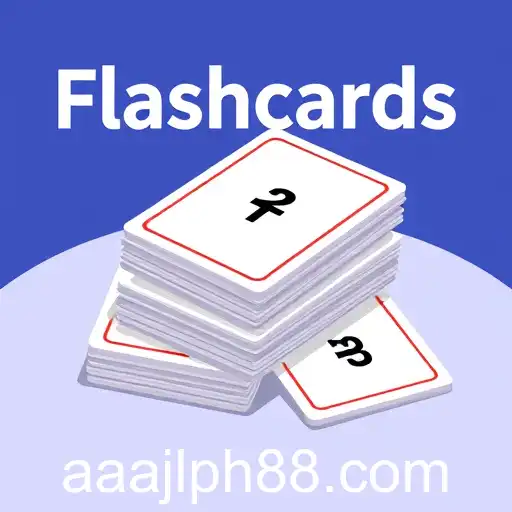In recent years, flashcards have evolved from a simple educational tool to a dynamic category in the world of online games. With the keyword 'aaajl', enthusiasts in this field have flocked to websites offering a diverse range of flashcard-based games, aimed at both entertainment and educational purposes. This article delves into the fascinating aspect of flashcards as a game category, highlighting their significance and the myriad of opportunities they offer for learning and memory enhancement.
Flashcards have always played a critical role in education, primarily serving as an aid to help students memorize information across various subjects. Today, digital transformation has redefined their utility, making them not just a study aid but also an engaging game format that appeals to all age groups. Websites that feature flashcard games utilize interactive features and gamification strategies to make learning more engaging, significantly boosting user engagement and retention.
The primary appeal of flashcard games lies in their simplicity and effectiveness. Designed to facilitate active recall, the process of repeatedly testing knowledge till it’s committed to memory, flashcards utilize spaced repetition algorithms to optimize learning intervals. This method helps combat the 'forgetting curve', a phenomenon best described by the decline of memory retention over time. By intelligently scheduling review sessions, flashcard games can significantly enhance memory retention.
Moreover, flashcards as a game category offer a variety of themes, topics, and formats—ranging from vocabulary builders and language learning aids to preparing for competitive exams or even mastering trivia. This versatility extends their appeal across a wide demographic. From young children to adults seeking lifelong learning opportunities, everyone can benefit from these intellectually stimulating games hosted on website platforms.
For educators, incorporating flashcard games into classroom learning strategies can be extremely beneficial. They encourage a self-paced learning environment where students can continuously test their knowledge, identifying and focusing on areas that need improvement without external pressure. Additionally, the incorporation of graphic elements, sounds, and rewards in online flashcard games fosters motivation and enhances the overall learning experience.
In conclusion, flashcards as a game category on websites represent an innovative approach to learning, combining traditional educational methods with modern technology. As they continue to evolve, they hold great promise for the future of digital learning, supplementing education with enjoyment and effectiveness. With the growing interest and the continued emphasis on online education tools, flashcards are set to remain an integral part of educational strategies for years to come, unlocking the potential for knowledge acquisition in a world increasingly leaning towards digital engagement.

An in-depth look into the world of flashcards as a game category on websites, exploring its features, user engagement, and educational benefits.




